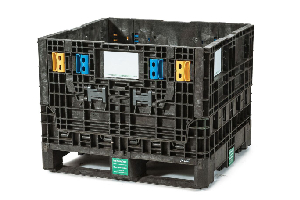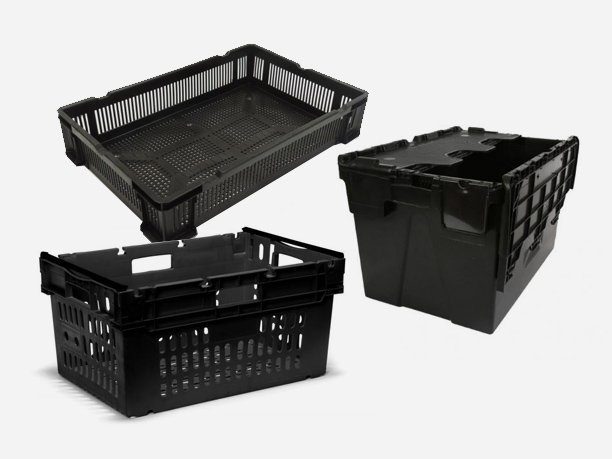Affordable Storage Space: Check Out Used Bulk Plastic Containers for Sale
Affordable Storage Space: Check Out Used Bulk Plastic Containers for Sale
Blog Article
Maximize Your Recycling Effect by Recycling Utilized Plastic Containers
In the pursuit of lasting living techniques, the relevance of recycling has actually become progressively obvious. Nonetheless, the impact of reusing can be additional intensified by integrating the practice of reusing made use of plastic containers. When considering the environmental ramifications and resource conservation benefits, recycling plastic containers offers a reliable and sensible means to minimize waste. By checking out the numerous methods which these containers can be repurposed, one not just adds to a cleaner world yet also faucets into a realm of creative thinking and ingenuity. The possibilities are substantial, and the benefits are far-reaching, making the undertaking of taking full advantage of reusing impact with recycling plastic containers a beneficial and appealing method to discover.
Advantages of Reusing Plastic Containers
Reusing plastic containers not just minimizes waste but also contributes considerably to ecological sustainability. By deciding to recycle plastic containers rather of discarding them after a single usage, individuals can play a crucial role in minimizing the demand for brand-new plastic manufacturing. This technique directly equates to a decrease in the intake of resources, energy, and sources required for manufacturing brand-new containers.

Moreover, reusing plastic containers aids in reducing the quantity of plastic waste that ends up in garbage dumps or pollutes our seas and natural environments. Plastic air pollution is a pushing international concern, and by extending the life-span of plastic containers via reuse, we can minimize the damaging effect on the atmosphere. Furthermore, reusing plastic containers can lead to a decline in greenhouse gas discharges linked with the production and transport of new plastic products.
In significance, the simple act of reusing plastic containers can yield considerable ecological benefits by saving sources, minimizing waste, and decreasing air pollution, making it a practical and impactful sustainability method for people and areas alike.
Creative Upcycling Ideas for Containers
Thinking about the ecological advantages of expanding the life expectancy of plastic containers with reuse, discovering imaginative upcycling concepts presents a cutting-edge approach to further sustainability initiatives. There are numerous inventive methods to repurpose used plastic containers, adding to waste reduction and advertising eco-conscious actions. One creative idea is to transform vacant plastic containers right into self-watering planters by cutting the leading part of the bottle and developing a wicking system making use of a cotton string. This not only gives a brand-new life to the plastic container yet additionally aids in effective watering of plants. Another upcycling concept is to make use of big plastic containers, such as washing cleaning agent bottles, as storage bins for items like toys, craft materials, or even as makeshift planters for tiny indoor yards. By repurposing these containers, individuals can decrease their ecological footprint while adding a touch of imagination to their lives. Accepting such upcycling initiatives can motivate others to reconsider the way they watch and utilize plastic containers, relocating in the direction of a more ecologically friendly and lasting lifestyle.
Tips for Effectively Cleaning Containers
Keeping sanitation in containers is essential for ensuring hygiene and prolonging their use. To effectively clean made use of plastic containers, start by emptying any type of remaining components and rinsing them with warm water to eliminate food fragments and residue. For containers with stubborn spots or odors, develop a blend of equal parts water and vinegar or sodium bicarbonate and water, and allow it sit for a couple of hours prior to rubbing and rinsing extensively. Avoid using rough chemicals or rough scrubbers that can damage the plastic. In addition, make sure to dry out the containers totally prior to saving them to stop mold read the full info here and mildew growth. For containers with limited edges or little openings, take into consideration making use of a container brush or tooth brush to get to all areas (recycled plastic containers). Regularly evaluate the containers for indicators of wear and tear, such as splits or staining, and replace them if needed to maintain proper health requirements. By adhering to these cleansing ideas, you can see this page make the most of the life expectancy of your plastic containers and advertise a much healthier setting.
How to Store Reused Containers Effectively

Impact of Recycling on the Environment
Recycling containers has a significant favorable influence on the setting by minimizing waste and conserving resources. When containers are recycled rather of being discarded after a single use, it assists in lowering the quantity of plastic waste that ends up in land fills or seas. By prolonging the lifecycle of these containers, fewer brand-new ones need to be produced, leading to a reduction in the usage of resources and power needed for production. This preservation of sources plays an important duty in lessening the environmental impact connected with plastic manufacturing.
Moreover, reusing containers additionally adds to reducing greenhouse gas emissions. The process of manufacturing brand-new containers includes different energy-intensive tasks that release considerable quantities of co2 and various other toxins into the ambience. By reusing plastic containers, the demand for brand-new production declines, leading to decreased emissions related to the manufacturing and transport of new items. On the whole, the environmental benefits of reusing containers are substantial and play a vital function in advertising sustainability and minimizing the effect of plastic in the world.
Final Thought
Finally, reusing utilized plastic containers can dramatically minimize waste and lessen the environmental influence of single-use plastics. By artistically upcycling containers, effectively cleansing them, and successfully storing them, individuals can maximize their reusing efforts and add to an extra lasting future. Making a conscious effort to recycle plastic get more containers not just profits the setting however likewise motivates an extra green way of living generally.

Report this page